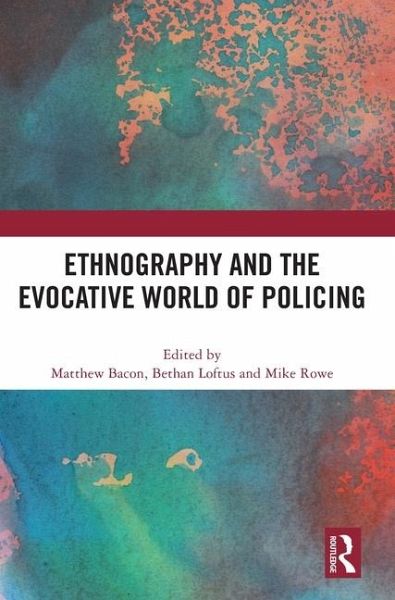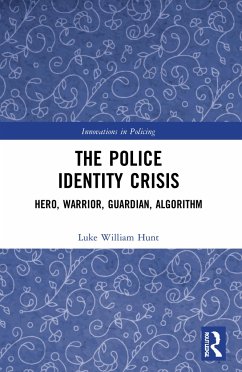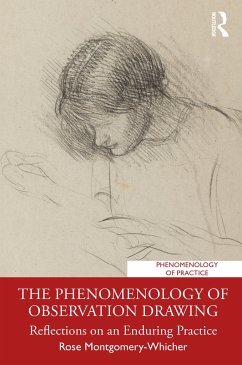
Ethnography and the Evocative World of Policing
Versandkostenfrei!
Versandfertig in 6-10 Tagen
154,99 €
inkl. MwSt.

PAYBACK Punkte
77 °P sammeln!
This book demonstrates the unique contribution police ethnographies make to our understanding of policing cultures and practices in a variety of international settings. It features contemporary examples of police ethnographies that demonstrate the continuing value of ethnographic work to our understanding of policing.The first section of the book focuses on the police and Anglo-American policing. The second section is international in scope and seeks to enrich our understandings of policing 'beyond' the police. Chapters explore police interactions during a stop and search and at a carnival. Th...
This book demonstrates the unique contribution police ethnographies make to our understanding of policing cultures and practices in a variety of international settings. It features contemporary examples of police ethnographies that demonstrate the continuing value of ethnographic work to our understanding of policing.
The first section of the book focuses on the police and Anglo-American policing. The second section is international in scope and seeks to enrich our understandings of policing 'beyond' the police. Chapters explore police interactions during a stop and search and at a carnival. They peer behind the scenes at the control room and at the use of intelligence. We listen in to the experiences of new recruits and the stories told in canteens. They also take us into the world of private security agencies, to Kenya and to Vietnam. The book explores the position of ethnographers asking: whether we do too much with rather than on the police; and whether our work reveals more about us as academics than them as officers. Together, they are revealing of a changing policing landscape.
Ethnography and the Evocative World of Policing demonstrates the unique value of ethnographic work in the fields of policing studies and criminology. It will be a key resource for scholars and researchers of policing, criminology, sociology, law, and research methods.The chapters in this book were originally published in two special issues of Policing and Society.
The first section of the book focuses on the police and Anglo-American policing. The second section is international in scope and seeks to enrich our understandings of policing 'beyond' the police. Chapters explore police interactions during a stop and search and at a carnival. They peer behind the scenes at the control room and at the use of intelligence. We listen in to the experiences of new recruits and the stories told in canteens. They also take us into the world of private security agencies, to Kenya and to Vietnam. The book explores the position of ethnographers asking: whether we do too much with rather than on the police; and whether our work reveals more about us as academics than them as officers. Together, they are revealing of a changing policing landscape.
Ethnography and the Evocative World of Policing demonstrates the unique value of ethnographic work in the fields of policing studies and criminology. It will be a key resource for scholars and researchers of policing, criminology, sociology, law, and research methods.The chapters in this book were originally published in two special issues of Policing and Society.














